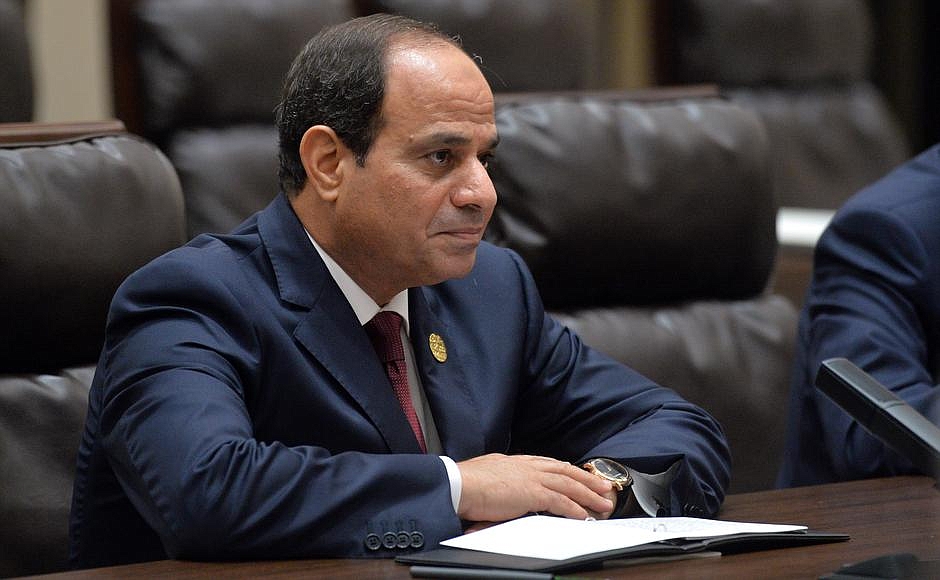by Rana Allam
Five years ago, during the 18 days of the Egyptian revolution, the US administration was reluctant to take a position and side with the protesters who were calling for democracy and dignity. Egyptians, at the time, wondered why Obama, who two years earlier delivered an inspiring speech at Cairo University about human rights and democracy, did not immediately side with the voices echoing his words. During those crucial moments in Egypt’s uprising, Hillary Clinton was very concerned about the “stability” of the country. As she says in her book, she “counseled caution” when asked whether to push Mubarak publicly toward an immediate transition. After all, Clinton considered the dictator Mubarak to be a family friend.
The Washington Post’s David Ignatius argues that Clinton saw the current chaos in Egypt coming. But what did she and the administration do to help avoid it? Over the past five years, and until today, US policy towards Egypt has been one mistake after another. Obama’s idealism played only a minor role in an overall faulty policy. For instance, the administration called the election that brought the Muslim Brotherhood’s Morsi to the Cairo presidential palace, a “democratic election.” Yet, fear mongering and negative campaigning on top of a highly oppressive political climate undermined, if not made impossible, the idea of a fair election. One of the monitoring groups, the Carter Center said that “elements of martial law obstructed voting and the democratic process.” When Clinton visited Cairo right after the election, she met with Morsi and affirmed Washington’s “strong support” in an effort to achieve some semblance of stability in the most populous Arab country regardless of how such stability is brought and whether it is in fact sustainable.
On July 3, 2013, when the Egyptian armed forces, led by current President Abdel Fatah el-Sisi, overthrew Morsi, Obama said, “we are deeply concerned by the decision of the Egyptian Armed Forces to remove President Morsi and suspend the Egyptian constitution.” Yet, US support for the dictatorship in Egypt, all in the name of stability in the region, did not falter.
Those who live in Egypt and believe in human rights and dignity also dream of stability. But how can there be stability at a time of political oppression, economic collapse, the brutality of security forces, the politicization of the judiciary, the crushing of civil society and the media, and the spread of fear and hunger?
Post-Revolutionary Crackdown
There have been 60,000 political prisoners in Egypt since the 2011 revolution, the vast majority imprisoned under the Sisi regime. Nineteen new prisons were built since the revolution, 16 of them under Sisi. Fifty-eight reporters have been thrown behind bars since Sisi overthrew Morsi in July 2013. In fact, the head of the Press Syndicate and other members of the board are currently on trial. In 2015 alone, over 3,000 civilians faced military trials, 137 died in detention facilities, and 640 were tortured by the police. There have been over 200 cases of enforced disappearances.
Meanwhile, the government has been shutting down NGOs, including organizations that help rehabilitate victims of torture, street children charity organizations, and women’s rights centers. Prominent human rights lawyers have been put on trial, banned from traveling, and had their assets seized. Judges have been removed from office, the media has been gagged, and the police have full immunity. One of the important services Egyptians now get is a daily updated calendar of political trials, offered by a rights organization.
Some would overlook political oppression if the economy is doing well. But even this is not the case in Egypt. Economic woes are overwhelming everyone, from the rich to the very poor. There are shortages in basic commodities like sugar and baby milk, soaring prices caused by high inflation, shortages in foreign currency, and a staggering gap in exchange rates between the black market and the official prices with the government rationing dollars in the official channels. Almost 23 million Egyptians—more than 25% of the population—live in poverty, and youth unemployment is at 40%. Local businesses are unable to survive and many shut down, while many investors have halted operations in Egypt because they are not making profits.
Egyptians are told to bear with the government, that everything is their fault and that they are lazy. They’re told to donate their money (including loose change) to the government. They’re told by the media and the president that they are in a state of war against terrorism and that it’s better to live in Egypt than in Syria or Iraq.
What Stability and Peace?
Egypt has been buying billions of dollars in arms, all in the name of the fight against terror. Yet, terrorist attacks have been on the rise in Egypt, and the failure to stop them is astonishing. In the second quarter of 2016 alone, there have been 228 attacks, 195 of them in North Sinai. Many questions are raised regarding the state’s counter terrorism efforts, but there are no answers. The army has made itself the only source of information about Sinai through an anti-terrorism law which can put in jail any reporter who challenges the official narrative. The army has been demolishing homes, evicting people, and killing alleged militants. The result: a poor human rights record and an astounding rise in terror attacks.
Yet, both US presidential candidates met with Sisi during his visit to New York for the UN General Assembly this year. Trump and Sisi would definitely get along well. In fact, Trump actually praised Sisi for seizing power and said he was a “fantastic guy.” In return, Sisi endorsed Trump and said he would be a “strong leader.”
Clinton views Sisi as another dictator who has brought stability to Egypt (or, at least, prevented the country from sliding into all-out war). But this stability is unsustainable. And the United States has lost considerable moral authority by embracing Sisi’s version of stability instead of demanding that the country adhere to principles of human rights and international law.
For Egyptians, whoever wins the US elections, we lose.
Rana Allam is former chief editor of Daily News Egypt, with a journalism career dating back to 1995. She is currently an advisor and editor to the International Civil Action Network (ICAN) and the Women Alliance for Security Leadership (WASL) organizations.
Photo: Egyptian President Abdel Fatah el-Sisi






Sounds like a typical American ally. Look at poor Yemen,with American help to its democratic freedom-loving ally SaudiArabia. Look at Honduras, now Brazil and Venezuela after a few good years of escaping US “help”. Observe liberated Libya, Iraq, Syria, Palestine.